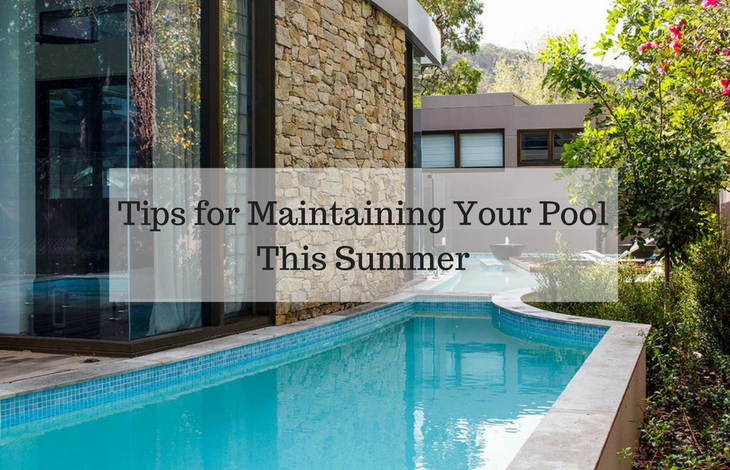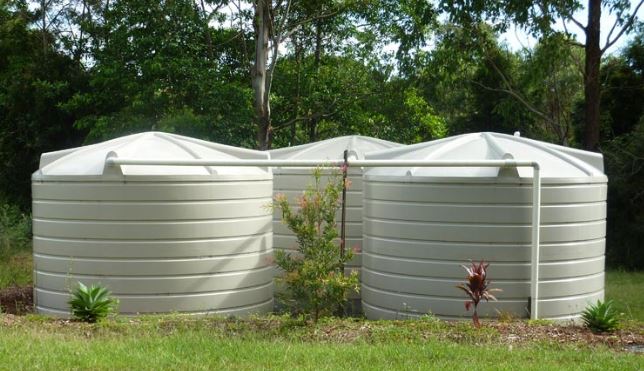Summer is not summer without a nice dip in the pool. It makes everything cooler, literally. You need to make sure that your pool is functioning well throughout summer to avoid the long faces when the kids want to swim, or your friends want to have a pool party.
Many people with pools don’t know how to keep them in proper working condition. Having a professional company that is affordable and efficient maintain your pool for you is the safest route to take. It is important to have some tips and tricks when it comes to the pool so that you can enjoy it fully. Here are some tips for maintaining your pool this summer.
Skim Debris and Clean out Baskets
Skimming the pool’s surface by hand every few days is one of the fastest and easiest ways to keep your pool clean. Floating debris will eventually sink and become harder to remove. Use a long-handled net called a hand skimmer or leaf skimmer to remove leaves, bugs and other unwanted items. Skimming significantly increases the efficiency of the pool’s circulation system and lowers the amount of chlorine you’ll need to add to your pool. Cleaning out strainer baskets at least once a week also helps circulation and lowers chlorine demands.
Vacuum the Pool and Brush Walls and Tile
The pool should be vacuumed every week to keep water clear and reduce the number of chemicals you need to add to it. If you have a manual skimmer design, work it back and forth all over the surface of the pool like you would if vacuuming carpet. Brushing the walls and tile helps minimise algae build-up and calcium deposits, so they don’t fester and become larger problems. The material your pool walls are made of dictates what kind of cleaning tools you should use.
Clean the Pool Filter
There are three kinds of pool filters: cartridge, sand and diatomaceous earth. While there are different maintenance procedures for each type, all require periodic cleaning depending on the type of filter and how often a pool is used. Cleaning the filter more often than recommended can actually hinder the filtration process. A clean filter is less efficient than one with a mild amount of dirt in it because the dirt helps trap other particles, which removes debris from the water.
Professionally Service the Heater
Pool heaters typically require the least maintenance of all pool equipment. Gas heaters can work fine without being serviced for a couple of years, and electric ones can last even longer. Consult your manufacturer’s manual for specific care instructions. Sometimes, calcium scales build up inside the tubes of a heater and restrict flow, preventing the water from heating adequately. If this happens, recruit the help of a professional because the heater may need to be disassembled and have its tubes cleaned out with a wire brush or acid.
Check and Maintain Water Level
A lot of water will be lost throughout the swimming season mainly because of evaporation and normal wear and tear, such as swimming, splashing and exiting the pool. When you remove debris with your skimmer throughout the week, that’s also a good time to check the water level. Ensure it doesn’t fall below the level of the skimmer, otherwise, the pump could be damaged. If the water is low, use a garden hose to bring it up to safe levels. If you drain your pool to perform maintenance or once the swimming season has passed, be careful not to let the pool sit empty too long.
Maintain the pH Level
Pool water should be tested regularly to make sure it’s clean and healthy. The pH scale is a measurement of acidity or alkalinity that runs from 0 to 14. A reading between 7.2 and 7.8 is ideal; this range is safe for swimmers and helps sanitizers work at top efficiency.
You can monitor your pool’s pH level with a testing kit. There are many kinds of testing kits available; however, most homeowner versions are either reagent kits or test-strips. Reagent kits aren’t too difficult to use. You take a sample of pool water, then add liquids or tablets to it. The water changes colour, indicating its chemical balance.
Find and Repair Leaks
Sometimes it’s difficult to determine if low water levels are due to evaporation or a leak. You can discover leaks in your pool by conducting a simple bucket test. Fill a plastic bucket three-quarters full of water. On the inside of the bucket, mark the water line. Place the bucket in the pool, then mark the water line on the outside of the container. (If the bucket has a handle, remove it to allow for better stability while floating.) Let it float for two or three days. If the water inside and outside the bucket has gone down the same amount, your pool is losing water due to evaporation. However, if the pool water level has gone down more than the water inside the bucket, your pool leaks. That’s your cue to call a professional to have it patched.




